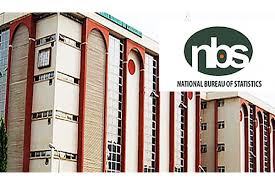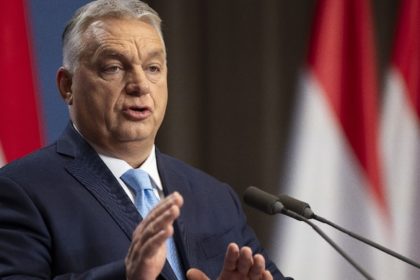Nigeria’s inflation rate surged to 34.60% in November 2024, marking a sharp rise from 33.88% in October, according to the latest Consumer Price Index (CPI) report released by the National Bureau of Statistics (NBS). The increase highlights the deepening economic challenges facing millions of Nigerians as the cost of living continues to soar.
The report reveals that headline inflation grew by 0.72% on a month-on-month basis, further widening the economic strain. Compared to the same period last year, inflation climbed by 6.40%, rising from 28.20% recorded in November 2023.
Food prices remain a significant driver of this inflationary surge, with food inflation hitting a staggering 39.93% in November, up from 39.19% the previous month. The rising cost of essential staples such as rice, maize, and vegetables has compounded hardships for citizens, particularly in urban centers where inflation stands at 37.10%. In rural areas, inflation was reported at 32.27%, underscoring the widespread nature of the economic burden.
The Central Bank of Nigeria (CBN) has continued its aggressive monetary tightening policy under Governor Olayemi Cardoso in a bid to control inflation.
The latest intervention saw interest rates increased to 27.50% in November, a move justified as necessary to address persistent inflationary pressures.
Despite these efforts, prices of goods and services remain stubbornly high, further straining households already grappling with stagnant wages and rising unemployment.
Economic analysts note that while monetary interventions are critical, they have yet to yield the desired impact due to structural challenges in the economy. Factors such as insecurity disrupting agricultural production, supply chain bottlenecks, and the depreciation of the naira continue to fuel inflationary pressures.
“This inflationary trend has worsened the purchasing power of Nigerians,” economic analyst Chinedu Ubah explained. “The rising food and transport costs, combined with limited economic opportunities, are pushing more citizens below the poverty line.”
In recent months, the CBN’s policies had shown modest success, with inflation rates exhibiting slight declines in July and August. However, the upward trend has since resumed, signaling that deeper economic interventions may be required to achieve stability.
The impact of the inflation surge is most evident in households, where families are forced to make difficult choices between basic needs. Traders in local markets report dwindling sales as consumers buy less, while transport operators note increased fuel costs that are passed down to commuters.
“The prices of food are out of control,” said Hauwa Ali, a market trader in Abuja. “Every week, suppliers increase prices, and we have no choice but to follow. Customers are complaining, and many just walk away.”
The inflation spike comes at a critical time for the Nigerian government, which has pledged economic reforms to stabilize the economy. However, the persistent rise in inflation raises questions about the effectiveness of current policies and the need for broader measures to address supply-side constraints and boost productivity.
As Nigerians brace for the upcoming holiday season, the inflationary pressures are expected to further exacerbate living conditions, with many calling for urgent action to tackle the root causes of the economic crisis. For now, citizens continue to navigate a challenging economic landscape marked by rising costs and shrinking purchasing power.




